How do our cats tell us if they aren’t feeling well? Very subtly.
Cats are notorious for hiding signs of illness, and if they are lucky, their human takes them to the vet once a year for a check-up. A lot can happen during that year, so what if I told you that there was something easy you could do to help you assess your cat’s health in-between?
Do you have multiple cats and a food management issue? Do you suspect that Buddy is eating all the food while Fluffy nibbles?
Do you have an older cat?
Do you have an overweight cat?
Then I’m here to convince you that you need a scale for your cat. A good way to get a handle on your cat’s health is to weigh them regularly. A scale is not going to tell you WHAT might be wrong, but knowing your cat’s normal weight and tracking changes can help you see if there might be an underlying issue that needs a vet check, or if your cat’s exercise and weight loss plan is paying off. Weight loss is a sign of many chronic illnesses, especially in senior cats. To that end, I encourage you to see a scale as part of your kitty supply kit, alongside with those interactive toys, litter boxes, and scratching posts.
I recently spoke with Dr. Tony Buffington, DVM (whose credentials include being a Veterinary Nutritionist, Professor Emeritus at Ohio State University’s School of Veterinary Medicine, and all around amazing guy) about why you should weigh your cat routinely.
Dr. Buffington said a key issue is that, “It can be difficult (for owners) to accurately “guesstimate” changes in a cat’s weight, due to conformation, hair coat, etc. Unintentional weight changes raise my “index of suspicion” that a problem may be developing.”
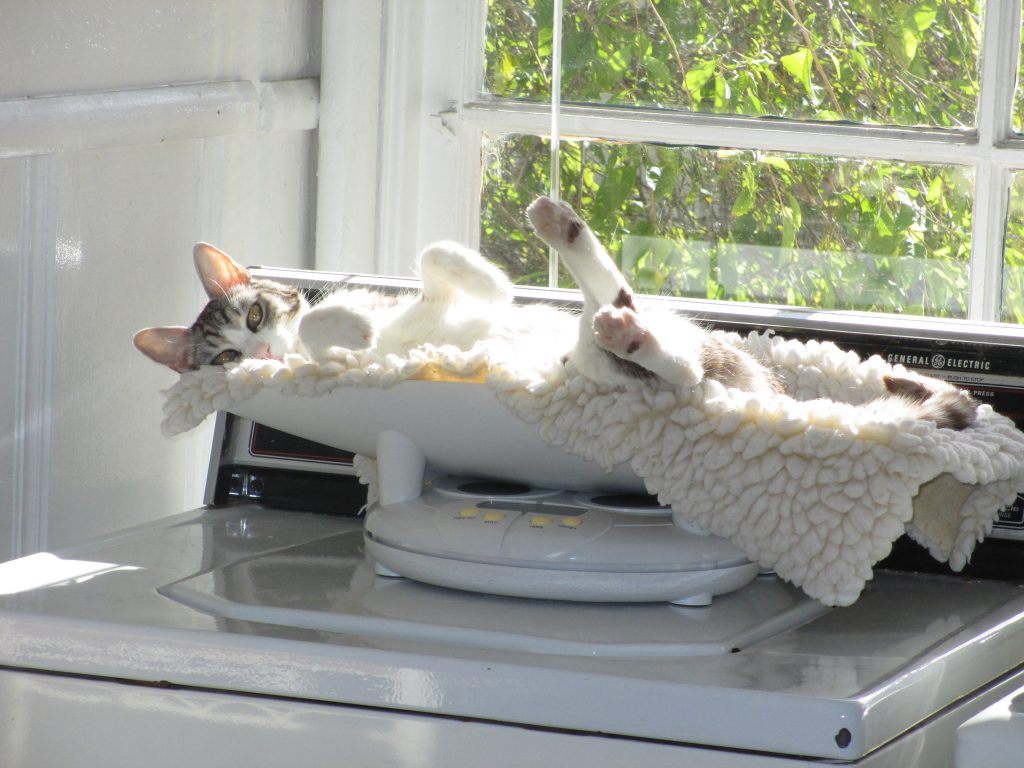 When one of my cats was diagnosed with inflammatory bowel disease a few years ago, I borrowed a friend’s baby scale so I could track her weight. Well she ended up loving it so much that I just bought one. I really like the scooped baby scales, because…well, once you add a fleece, it doubles as a great cat bed.
When one of my cats was diagnosed with inflammatory bowel disease a few years ago, I borrowed a friend’s baby scale so I could track her weight. Well she ended up loving it so much that I just bought one. I really like the scooped baby scales, because…well, once you add a fleece, it doubles as a great cat bed.
Now if you are thinking, how the heck am I going to get my cat on a scale regularly? Perhaps you already struggle with giving your cat medication, or your cat (like many obese cats) does not enjoy being picked up or held.
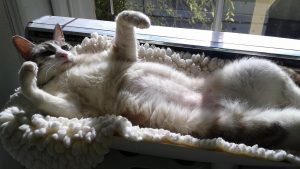 Well as Dr. Buffington says, you can “teach your cat to enjoy using (a scale).” In a study he is currently conducting, he and his colleagues “asked participants to weigh their cats every day at first to get them and their cat into the habit of regular weighing (which was found to be one of the best predictors of maintenance of lost weight in humans).” Regular can mean anything from weekly to monthly, depending on your cat.
Well as Dr. Buffington says, you can “teach your cat to enjoy using (a scale).” In a study he is currently conducting, he and his colleagues “asked participants to weigh their cats every day at first to get them and their cat into the habit of regular weighing (which was found to be one of the best predictors of maintenance of lost weight in humans).” Regular can mean anything from weekly to monthly, depending on your cat.
- First step, get the scale and add a comfy blanket, fleece or towel. Put it somewhere safe and cozy, or in a nice sun spot.
- Give your cat positive associations with the scale by placing treats nearby. Once your cat is eating the treats, you can lure her onto the scale with more treats.
- Lure your cat into a sit position and give more treats!
If you use treats consistently and let your cat get comfortable with the scale on her own terms (rather than picking her up and putting her on it), she will soon see getting on the scale as a way to get treats from you. Tare the scale, and call her – or place the scale somewhere that she learns – this is the time that sitting on the scale = delicious treats. Soon all you have to do is put the scale in this location, and your cat will come on over. Record your cat’s weight, and you’re good to go.
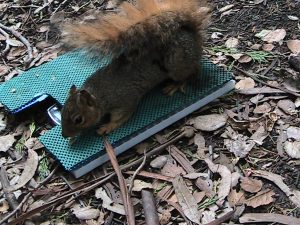 If you don’t think your cat will do this, all I can say is that I was able to train wild squirrels to get on a scale without ever touching them.
If you don’t think your cat will do this, all I can say is that I was able to train wild squirrels to get on a scale without ever touching them.
Training will work on your cat. And if your cat ISN’T older, or ill, or overweight, training them to like the scale now will pay you back in spades later in her life.
In Dr. Buffington’s study, “only one of the eight owners reported difficulty with weighing, partially due to the difficulty of finding a permanent, stable place in his small apartment for the scale, and partly due to his erratic (4th year vet student) schedule.”
If your cat is not that food motivated, try using a toy or catnip or a heated pad to lure her onto the scale, or get her in the habit of eating her meals on the scale.
When is your cat’s weight change a concern? Well, the best person to ask is your veterinarian, because it depends on your cat’s health. Dr. Buffington suggested, that “over 5% of unintended weight change over three months would concern me.”
So, if you resolve to do ONE new thing for your cat this year, I’m saying investing in a scale is an easy thing…and if your cat is anything like mine, she’ll just think you got her a new bed.
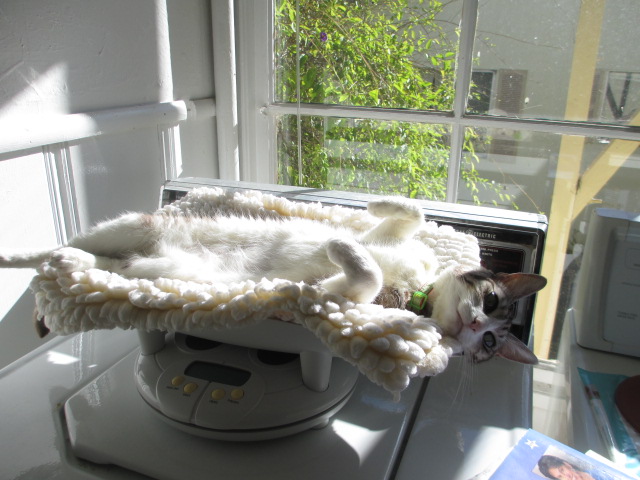

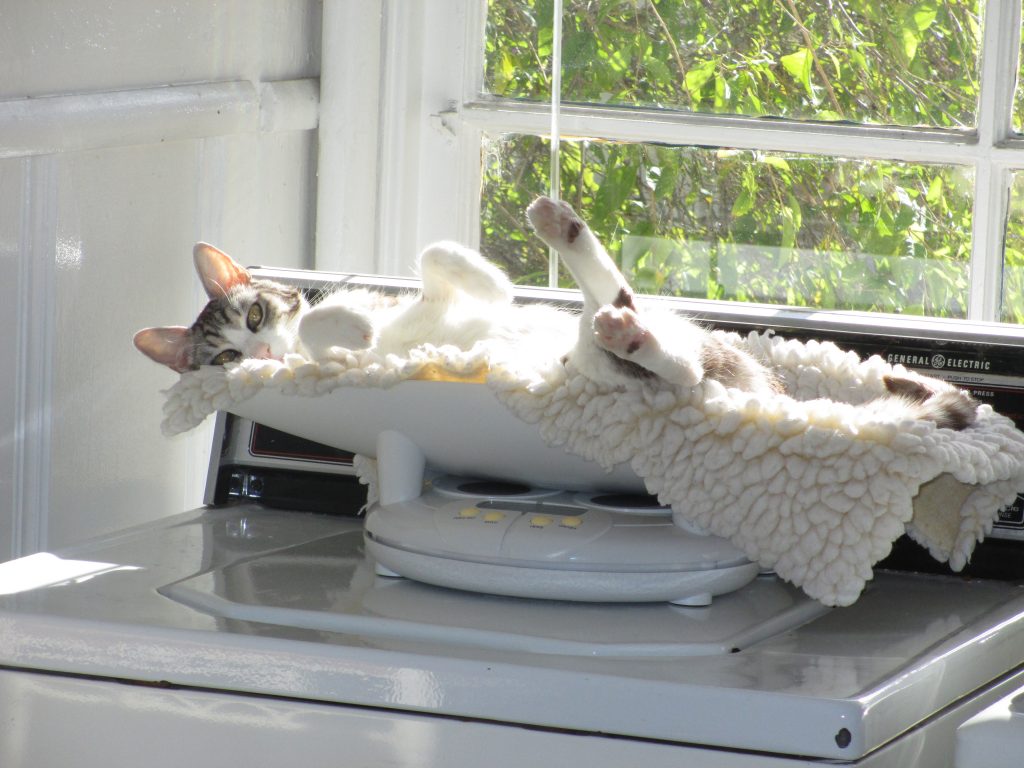
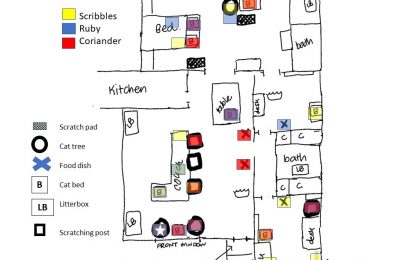
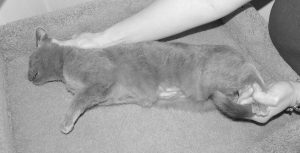
3 thoughts on “New Year’s Resolution: Weigh your cat!”
Comments are closed.